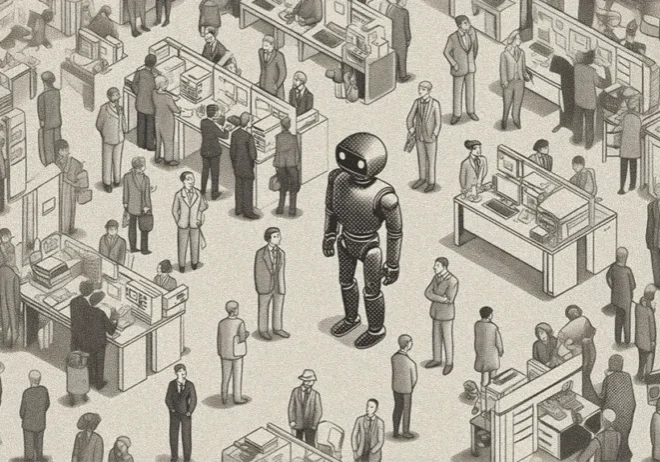
Leading Without the Megaphone: Team Building the Riley Westbrook Way
In an industry where “culture fit” often goes unchecked and inclusive leadership is more buzzword than blueprint, Valor Coffee is doing something different.
What started in 2016 as a scrappy mobile coffee cart in Georgia has grown into two cafés, a roastery, and a wholesale program with community baked into its DNA. But Valor’s most impressive evolution might not be found in its espresso, it’s in how they’ve redefined team building through systems of equity and honest feedback that actually work.
We communicated with Riley Westbrook, co-owner of Valor Coffee, to discuss their approach to diversity, equity, and inclusion. What followed was a deep, intentional shift in leadership style, hiring practices, and internal systems.
In this candid conversation, Riley walks us through what real DEI work looks like behind the counter, in team building, and in the guts of leadership decisions. Spoiler: it’s not performative and not perfect, but it’s working.
Let’s start with the part most people skip. When did you first feel something was off in your team, that gut feeling like, “Hmm… our team vibe isn’t as good as we think it is”?
Westbrook: The DEI work we do didn’t start with a big mission statement. It started when a few things broke quietly. We paid attention, and we made changes.
What was one of those “quiet breaks” you couldn’t ignore?
Westbrook: In the early years, we hired fast and leaned hard on what felt familiar.
That usually meant people like us, people in our orbit, or people who already spoke the same language we did. At the time, it felt efficient. But over time, we could feel it wasn’t working. We lost good people because they didn’t see a way to grow here.
That’s tough. How did it feel to hear that people were leaving because they didn’t see a future? What was hiring like, and how did that change?
Westbrook: That was hard to hear. But once we listened, we could not ignore it. We stopped asking who “fit the culture” and started asking who helped us build a better version of it.
We rewrote job listings to be clear, simple, and not packed with insider language. We changed how we interview, what we ask, and how we weigh experience. Over time, that started to shift to the kind of team we were becoming.
What does inclusive leadership actually look like at Valor now?
Westbrook: It means making space for people to lead in their own way. Some of our strongest team members are not the loudest in the room. They’re steady, sharp, and incredibly reliable.
A while back, we added peer nominations for lead roles. That gave us a whole new perspective. People who weren’t raising their hands for leadership still showed up every day with consistency and clarity. Once we created a path that didn’t rely on self-promotion, we started seeing more range in who stepped into those roles.
That made the whole system more balanced.
How do you ensure leadership is walking the walk on all this? And when something’s off, how do you actually fix it? A lot of places talk about a good game but never follow through.
Westbrook: At Valor, team building isn’t about slogans, it’s about creating feedback loops that actually lead to change. That follow-through is what turns principles into culture.
We built a check-in rhythm that actually gets used. Every two weeks, everyone on the team can submit quick feedback through a shared form. They can flag if something feels unclear or off, or if a policy is creating extra work. These go to our leadership group and get read the same week. If a pattern pops up, we talk about it and do something about it. There’s no delay. It’s just built into how we operate now. This system has become the backbone of our team-building efforts. It creates transparency, shows people their voices matter, and strengthens trust from the ground up.
One time, a few people flagged that late shifts were falling too often on newer hires. We pulled the data, adjusted the schedule, and rebalanced the load. That kind of stuff only happens when the loop between feedback and action is short.
You’ve talked about making sure feedback loops are short and action happens fast. So, when it comes to hiring, how have you shifted things? Team building is such a make-or-break moment for DEI. How have you adjusted your approach there?
Westbrook: We stopped requiring coffee experience for entry-level roles. We figured out that the stuff that actually matters: communication, awareness, and how someone handles pressure, wasn’t tied to past jobs.
We started interviewing for that directly. We give a realistic look at what the job will feel like in the first few weeks. And when someone is up for a promotion, we ask the people who work closest to them for real input. That includes feedback on how they support the team, how they coach without overstepping, and how they carry the room when things get tough.
Those signals say more than any one-on-one ever could.
So… no coffee experience required anymore? That’s a pretty bold move for a coffee company. Did that raise any eyebrows or get pushback?
Westbrook: Not everyone was sold at first. Some folks thought we were making the system more complicated.
Others didn’t really get why we were shifting a structure that looked like it worked on paper. We didn’t fight it. We just kept showing what was improving. We pointed to the new hires who settled in faster, the retention numbers that climbed, and the feedback from staff that got more honest over time.
Once people felt it in their day-to-day life, the skepticism started to fade.
I’m curious, what’s the biggest shift you’ve seen in your team culture as a result of all these changes?
Westbrook: People bring things up now. That sounds simple, but it’s a big shift. Instead of sitting on a problem for three months, they’ll mention it after one bad shift.
Instead of working around the same broken process, they’ll ask if we can try something new. That early feedback makes us faster and keeps problems small. It also means our team feels more steady. They know someone’s listening. That kind of consistent communication is the foundation of real team building.
It’s not loud. It’s just real.
That seems like a quiet shift. Last question, if you could tap your 2016 self on the shoulder mid-espresso shot and give him one piece of advice, what would it be?
Westbrook: Start sooner. Write things down. Make the expectations clear. Ask for input early, even when you’re still figuring it out. Don’t assume silence means things are fine. Pay attention to the people who aren’t speaking up. They often see things first. And keep everything simple enough that it can run even when you’re not in the room.

